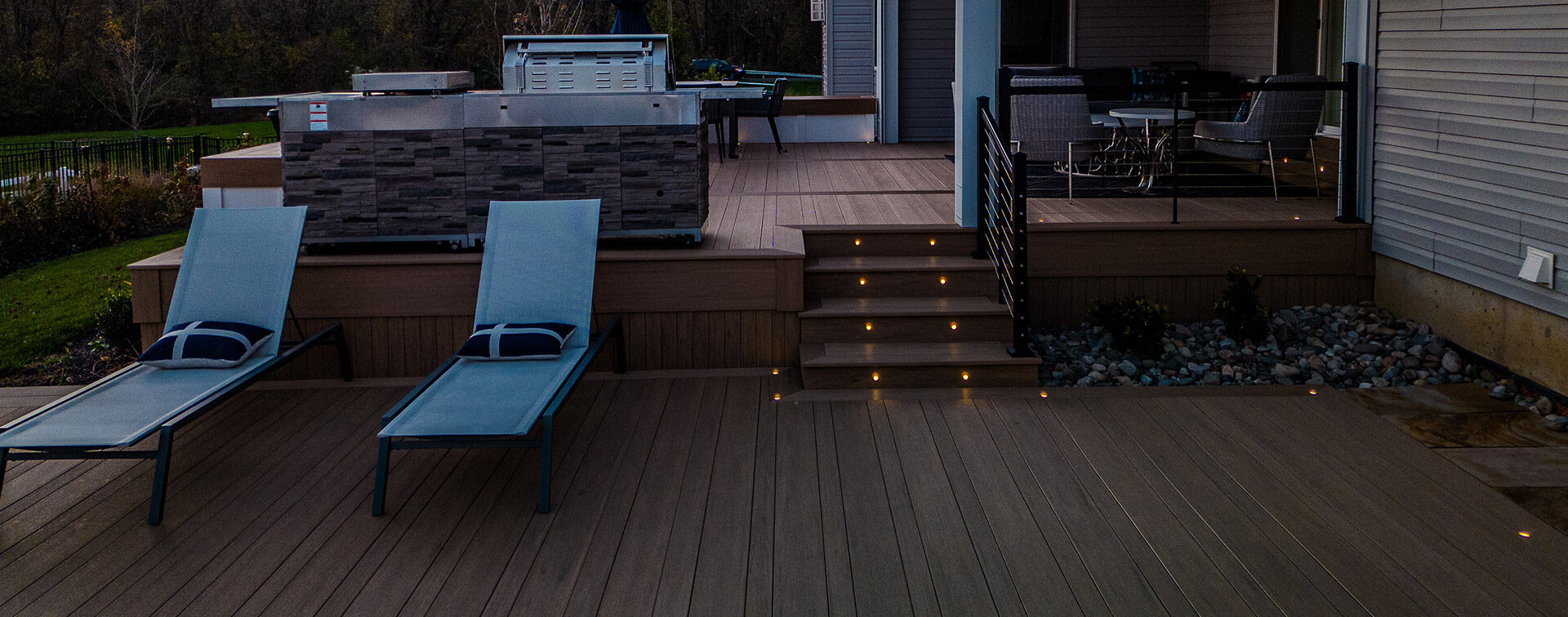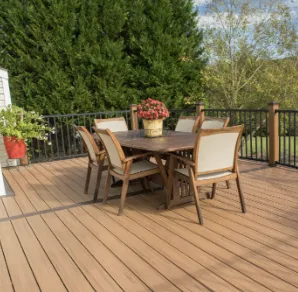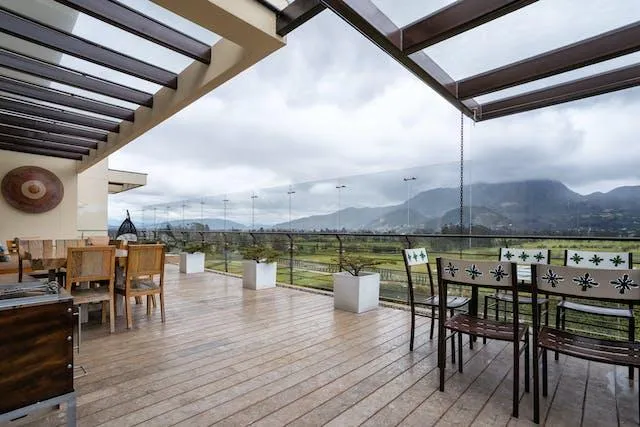When designing an outdoor deck, one of the most important considerations is privacy. Privacy walls not only shield you from the eyes of neighbors and passersby but also enhance the aesthetic appeal of your outdoor space and can provide some protection from the elements. There are several materials and styles to choose from, each offering different benefits and fitting various design sensibilities.
1. Wooden Privacy Walls
Wood is one of the most traditional materials used for privacy walls due to its natural appearance, versatility, and durability. It blends well with most outdoor environments and can be customized with stains or paints. Cedar and redwood are popular choices because they are naturally resistant to rot, decay, and insect infestations. For a more budget-friendly option, treated pine is also widely used. Wooden slat walls, lattice designs, or solid panels can provide varying levels of privacy and airflow, making them a customizable option for any deck design.
2. Composite Panels
Composite panels are a modern alternative to wood, made from a blend of wood fibers and plastic. They offer the look and feel of wood but with increased durability and less maintenance. Composite materials resist weathering, fading, and staining and do not require painting or sealing. These panels come in a variety of colors and textures, allowing for a highly durable and aesthetic privacy wall that complements a contemporary deck design. They are also environmentally friendly, often made from recycled materials.
3. Metal Privacy Screens
Metal privacy screens, particularly those made from aluminum or steel, provide a sleek, modern look while offering high durability. They can be powder-coated for additional resistance against corrosion and weathering, which is ideal for harsh climates. Metal screens often come in decorative patterns and designs that can act as a standout feature on your deck while providing the necessary privacy. These screens are perfect for those seeking a low-maintenance, long-lasting option.
4. Glass Panels
For those who do not want to compromise on the view while seeking a barrier against the wind and noise, glass panels are an excellent choice. Tempered glass provides durability and safety, ensuring that the panels are hard to break and shatter-resistant. Frosted or tinted glass options can offer privacy without blocking light, making your deck feel open yet secluded. Glass panels can be framed with metal or wood, blending strength with style.
5. Living Walls
A living wall, or a vertical garden, is a unique and eco-friendly choice for privacy on your deck. This option involves growing plants vertically using a trellis or a specially designed planting system. Besides enhancing privacy, living walls offer the benefits of greenery such as improved air quality and a cooling effect for the surrounding area. Suitable plants for a living wall include ivy, climbing roses, or jasmine, depending on the sunlight available.
6. Vinyl Fencing
Vinyl fencing is another low-maintenance material for outdoor privacy walls. It resists moisture, rot, and pests and doesn’t need to be painted or stained. Available in various colors and styles, including designs that mimic traditional wood fences, vinyl is a versatile option that can match many deck designs.
Conclusion
When selecting a privacy wall for your deck, consider the maintenance, durability, aesthetic preference, and how it complements your existing outdoor design. Each material offers unique advantages and can help transform your deck into a private retreat tailored to your lifestyle and taste. Whether you prefer a natural look with wood or a contemporary design with glass or metal, the right privacy wall can significantly enhance the enjoyment and functionality of your outdoor living space.





